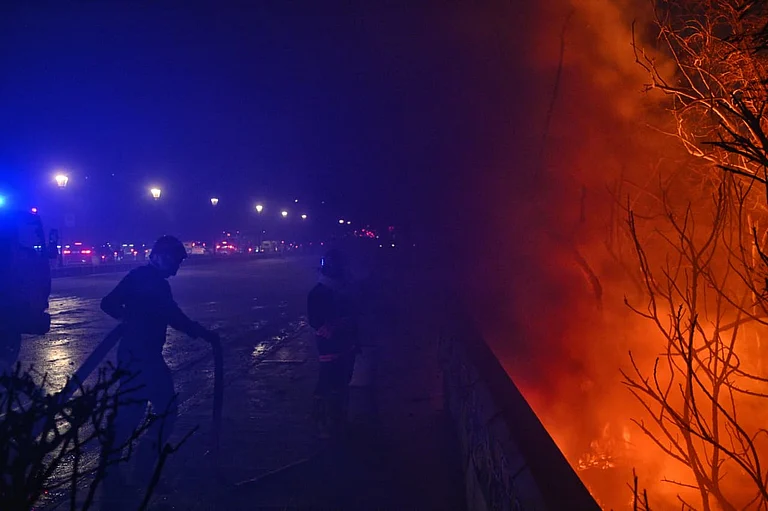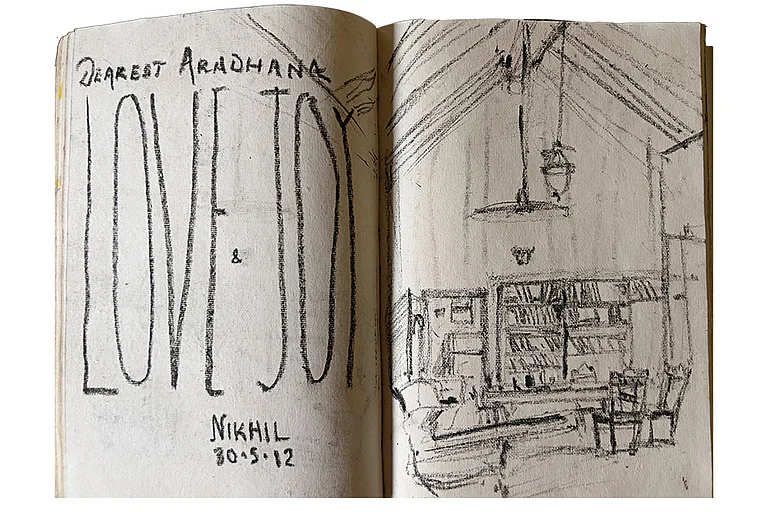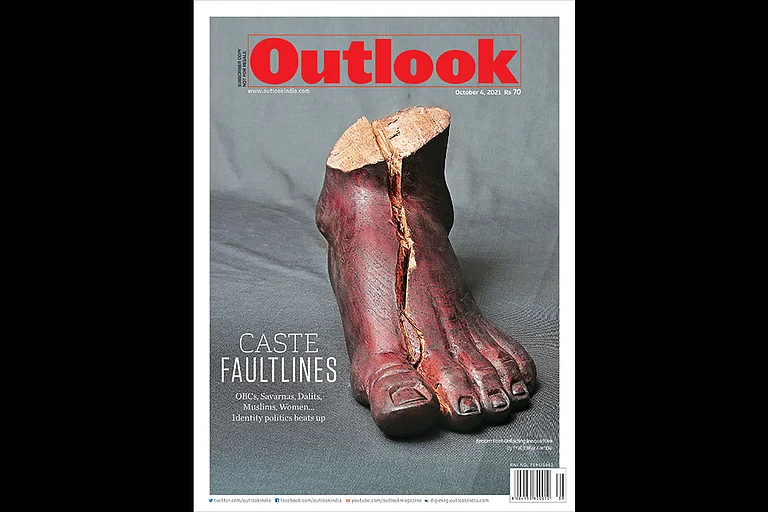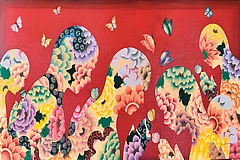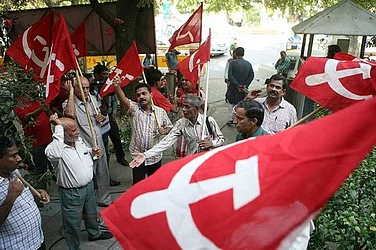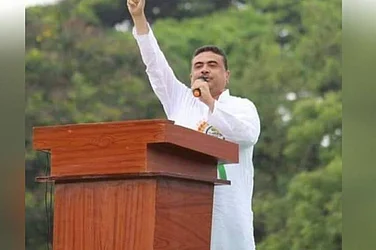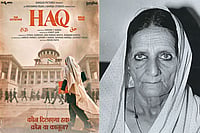Everyday at around four in the afternoon, the office would start to smell like a crematorium. That’s the time the first batch of chicken breasts and legs would enter the flaming tandoor and come out semi-singed at the nearby Rajinder Da Dhaba. The finishing touches to them would be given later when the orders started pouring in at around seven. From then on till beyond midnight, it would be a big, boisterous party in the parking area outside the office. What would add extra zing to the party at the Kamal Cinema shopping complex in Safdarjung Enclave, where both these august institutions flourished, from fledgling enterprises to become iconic brands in the last 30 years, were the four thekas or booze shops (only two now because of the botched-up liquor policy of the AAP government).
From our second-floor office, we had a vantage view of Rajender’s kitchen and were privy to many of its trade secrets. I won’t get into the details of their marination process and cooking methods here, but there was an old saying—nobody ever fell sick after eating at Rajender. Anything that enters the fire and brimstone of those tandoors, anything that passes the agnipariksha, has to come out purified.
Outlook’s HQ at AB-10, Safdarjung Enclave was perhaps the most unglamourous media office in the city. It may have been cutting-edge to have particle-board cubicles and an open office plan in 1995, but it mostly stayed the same till last week when it shut down. Once in a couple of years, after the Christmas-to-New Year-break, we would find a fresh coat of paint and some minor facelifts like wooden panelling on the staircase. But it largely remained the same—the false ceiling housing many generations of garrulous pigeons, one or two tubelights always on the blink, and spiderweb cracks on the floor tiles that had long lost their sheen. There was some talk of installing a lift for the four floors, as the scribes who had been there from the beginning became as old as the furniture, but the shaft remained empty till the end. I would visit friends in other offices, like NDTV’s with its circular staircase and slick studios at Archana Complex or the even more swanky Bloomberg’s in PTI building, with multi-cuisine lunch spreads in its pantry, and return to ours feeling like coming back to Sudama’s house. It would be like going to the Andhra Bhavan Canteen for dinner after an event at the Oberoi Ballroom. But if the ballroom had style, the canteen oozed charm. It may be staid and ordinary, but Outlook’s was the least pompous, most chilled out office. Long ago, there was a reception and a receptionist, but for many years now we have only had a guard. Virtually, anybody could just walk up the stairs and meet the editors or other journalists, which is true even today.
AB-10 was a place of fun and laughter, and of serious work. The edit meetings in the little conference room would last hours. Every story idea would be discussed threadbare and most of them thrown out.
The enduring image of AB-10 was, of course, Vinod Mehta. I joined Outlook much later, and by then Vinod was one of the top editors in the country, a regular on news TV, a Twitter sensation (and was fondly referred to as ‘dadu’ in office). There are many old-timers who would write about the early days, but Vinodisms and the stories of his eccentricities circulated till his last days. When he got off his car and headed towards the office, he would resemble Chef Egon from the Beau Peep comic strip who always had a swarm of flies around his head. In Vinod’s case, it would be the street urchins, the shoeshine boys, the parking lads, playing the paparazzi to him. He would give the boys some money and always ask when they were joining school. The other day I was chatting with Outlook photographer Tribhuvan Tiwari—who has been with the magazine from day one, but for a short break in between—about Vinod and the shoeshine boys and we remembered how they would be our ‘informers’. If we came early to office, they would ask us, ‘Arre, why have you come so early today? Sahab toh Bombay gaya hai.’ They knew all about Vinod’s whereabouts, when he was on leave, when he was out of town, when he had gone on a lunch meeting.
There are too many Vinod stories to tell, I will recount a couple of them here. One day, a senior journalist had come for a job interview with Vinod. The meeting lasted about half an hour, the journalist left and Vinod started having lunch in his cabin. In about 10 minutes, the journalist rushed back, knocked on Vinod’s door again, saying his home phone number had changed and he had forgotten to update it in his CV. Vinod coolly reached inside the dustbin, and fished out his resume, which by now was smeared by the lunch leftovers he had chucked in the bin. He spread it out on his table and the journalist, too stunned to react, crossed the old number and wrote the new one, and hurried out.
We had a great desk hand, I will call him G. For some reason, Vinod always had his eye out for him. G usually looked dishevelled with big, bloodshot eyes, unruly hair, always in a crumpled kurta and faded jhola. Vinod labelled him a JNU union leader, though poor G had never stepped anywhere near the institution. He had gone to Presidency College and then Jadavpur University in Calcutta. If G was late in editing a story, Vinod saw rebellion in him. Don’t start your CPI(M-L) activities here, he would be told.
Once, we were all way beyond the printing deadline. The desk was furiously clearing copies and Vinod was constantly coming to the second floor from his cabin downstairs, saying his favourite line: ‘Stop dawdling and get to work’. On one such trip upstairs, he couldn’t find G on his desk. (G’s computer was giving trouble and he had crawled underneath his desk to check the cables). Vinod kept yelling, ‘Where is G, where is G?’ At this point, G raised himself from under the desk and came out on all his fours, cobwebs and grime sticking to his already-unkempt countenance. ‘What? What the hell are you doing there?’ recoiled Vinod, as if he had caught G planting an IED.
I know many of these tales don’t sound as funny as what happened. AB-10 was a place of fun and laughter, and of serious work. The edit meetings in the little conference room would last hours. Every story idea would be discussed threadbare and most of them thrown out. Vinod was always up for pushing the envelope. We put the then education minister Kapil Sibal on the cover for the many controversial steps his ministry was taking in changing school curricula and calendar. The cover was a close-up of his face with a hand-drawn Hitler moustache over his upper lip. This came up for intense discussion in the edit meeting. Many felt it was going overboard. In the heated discussion, I muttered that it could also be Groucho Marx’s moustache. Vinod jumped at this, he loved the idea. In case Sibal sued us, we could take that recourse. So it was done. I think Sibal called Vinod and gave him a earful for the cover but I don’t think it went beyond that.
We had many misses too. Just before the May 2014 general election results, we did a cover headline: “No, He Can’t”, with a photo of Narendra Modi! But this is not the place to discuss Outlook’s cover stories and editorial stance. This is to bid a warm farewell to AB-10, Safdarjung Enclave, and look forward to another great run for Outlook from the new premises.
MORE FROM THIS ISSUE
Satish Padmanabhan is the Managing Editor of Outlook








